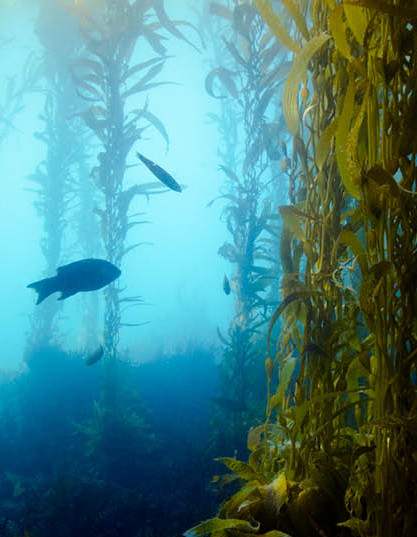Kelp risk in sign of times
 Scientists have uncovered a new threat to a key Australian kelp.
Scientists have uncovered a new threat to a key Australian kelp.
Researchers say that the kelp species Ecklonia radiata, a cornerstone of ocean biodiversity along Australia's southern coasts, is at a greater risk from climate change than previously understood.
The study focused on the so-called ‘cool edge’ populations, which thrive in waters around 7°C, challenging the prior assumption that kelp living in warmer waters are the most vulnerable to rising ocean temperatures.
The researchers found that these cool-edge kelp forests, which have adapted to their local cool temperatures, show a limited capacity to adjust to the increasing warmth brought about by global climate change.
This contradicts the common belief that cool-edge populations possess higher thermal tolerance.
Contrary to some marine species that benefit from elevated CO2 levels, which can enhance heat tolerance, Ecklonia radiata does not enjoy the same advantage.
The study shows that increased CO2 levels have minimal impact on the kelp's growth and only slightly boost photosynthesis at optimal temperatures. However, this slight advantage does not compensate for the negative effects of rising sea temperatures.
“Our findings demonstrate that elevated CO2 is unlikely to offset negative effects of ocean warming on the kelp Ecklonia radiata,” the researchers note, emphasising the precarious future of these cool-edge populations.
With thermal optima for growth and photosynthesis identified at approximately 16°C and 18°C respectively, the study models a grim scenario for these kelp forests under forecasted ocean warming trends.
The study adds a new layer to the understanding of marine ecosystems' responses to climate change. but also highlights the urgent need for comprehensive strategies to protect vulnerable marine populations.








 Print
Print